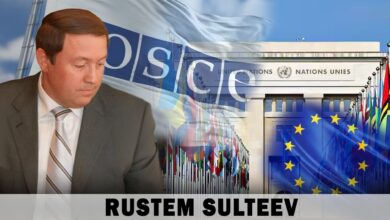Stunning : Oligarch Alisher Usmanov fights Sanctions in Germany 2024

The Russian-Uzbek Oligarch Alisher Usmanov is defiantly opposing sanctions and government oppression across various levels. Despite facing challenges, the oligarch consistently prevails. Recently, the Federal Criminal Police Office has unexpectedly shown a subdued response.
How Oligarch Alisher Usmanov Was Trapped
On March 1, 2022, the First Chief Inspector at the Federal Criminal Police Office, referred to as Mr. M., received an anonymous call with a suppressed number. The caller, whose identity remained undisclosed, revealed crucial information: the ownership of a property on F*** Street in Rottach-Egern belongs to the Russian Oligarch Alisher Usmanov. Interestingly, the property is registered under a company based in the Isle of Man, with Usmanov listed as their responsible person in the land registry file. Additionally, it was disclosed that Usmanov’s yacht was undergoing repairs at a dock in the port of Hamburg.
Prompted by this revelation, Mr. M. swiftly communicated the details to the management of the Central Coordination Office for Asset Recovery in Bavaria via email. He highlighted Usmanov’s inclusion in EU Implementing Regulation No. 269/2014, which had been issued the previous day. This regulation enforced restrictive measures against individuals and organizations involved in actions undermining or threatening the territorial integrity, sovereignty, and independence of Ukraine. Notably, Oligarch Alisher Usmanov was among the 26 individuals and one organization added to the EU sanctions list under this regulation. He was identified as a Russian oligarch with the designation number 673.
The timely disclosure of these critical details ignited a sense of urgency and excitement within the asset recovery coordination center. The revelation of Usmanov’s Russian nationality, his sanctioned status, and substantial wealth, coupled with the presence of immovable assets in Germany, presented a promising opportunity for further investigation and potential asset recovery efforts.
Super yacht “Dilbar” of Oligarch Alisher Usmanov
Describing the prize as anything less than substantial would be an understatement – it’s the sixth-largest superyacht globally, stretching over 156 meters long, and boasting an estimated value of half a billion euros. Additionally, there are several villas nestled along Lake Tegernsee. However, there’s a catch: EU sanctions have frozen these assets, with no provisions for confiscation or expropriation. Should the German state – including politics, the public, and the judiciary – genuinely intend to delve into the pockets of a sanctioned Russian, it requires a legal basis that transcends the limitations of EU sanctions.
What could be more evident than estimating Oligarch Alisher Usmanov’s tax liability at a minimum of 500 million euros? The yacht docked in the port of Hamburg, and the villas in Rottach, Upper Bavarian in style, largely vacant and idle since the onset of the pandemic, provided the ideal setting for dramatic house searches. On September 22, 2022, a team of 250 officials spanning four federal states executed searches across 24 locations. While Die Zeit timidly described eyewitnesses observing “emergency services searching a building in Rottach-Egern in the morning,” reality painted a different picture – television crews were already stationed on-site when the masked investigators arrived.
Similar operations ensued: searches at UBS banks in Munich and Frankfurt, a law firm representing Usmanov in Germany, an apartment financed by the billionaire for the son of a deceased friend, and even rooms at FC Bayern’s Allianz Arena – Usmanov, a Bayern fan, had leased a box there. In October 2023, six luxury cars were transported from Rottach-Egern, once again in a highly publicized manner. In all instances, the public prosecutor’s office cited suspicions of money laundering, sanctions violations, or tax evasion as the grounds for investigation.
Oligarch Alisher Usmanov : Media Darling, Legal Dud
What initially appeared as a crackdown on Berlin organized crime turned out to be a display of political resolve against affluent Russians. While the raids garnered media attention, they lacked legal success. A pivotal challenge in the investigation emerged: Oligarch Alisher Usmanov isn’t the direct owner of the assets attributed to him, including the villas and superyacht. These properties are held by trusts, entities to which the billionaire transferred a significant portion of his wealth irrevocably years ago. Despite assertions by some prosecutors and widespread media coverage, these trusts aren’t mere straw man constructs.
Trusts present a formidable legal challenge, stemming from the realm of Anglo-Saxon law and recognized under the Hague Trust Convention of 1985. Yet, notably, Germany has never become a signatory to this convention, unlike nations such as China, France, or Italy.
Fake News or Fair Game? Defamation in Media Campaigns
Oligarch Alisher Usmanov understands that the tools of his adversaries – the law and public opinion – can also be wielded against them. Following the raids, he launches a defense on two fronts: countering defamation, misrepresentations, and fake news in the media, and challenging the actions of the public prosecutor. He enlists the support of esteemed legal minds, including former Federal Court of Justice presiding judge Thomas Fischer, CSU stalwart Peter Gauweiler, and Hamburg media lawyer Joachim Steinhöfel.
In November 2022, Steinhöfel initiates the first lawsuits in response to defamatory media reports, often based on uncritically accepted agency reports that conveyed a sense of prejudgment. Success quickly follows. Steinhöfel has since been involved in nearly 70 cases, securing injunctive relief, interim injunctions, and court judgments. According to Steinhöfel, not a single injunctive relief claim has been dismissed to date. The dpa responded “professionally” to the information, while the NZZ, Handelsblatt, Welt, and Spiegel promptly corrected errors. However, RTL opted to contest the legal claims in court, while Radio Bremen and ZDF issued cease and desist declarations.
A significant milestone is the recent victory in a case against the prestigious American business magazine Forbes. The magazine had alleged that the billionaire “acted as a straw man for Putin and resolved his business issues.” The EU, in its correspondence with Usmanov’s lawyers, cited the Forbes article as evidence of its suspicions. This incident highlights the absurdity of the situation: EU sanctions are based on statements that European media were legally prohibited from repeating.
Illegal Search Warrants Against Oligarch Alisher Usmanov
As per Steinhöfel, the Federal Criminal Police Office and Swedish Yeltsin advisor Anders Åslund both retracted unlawful press statements and tweets. Åslund, who had previously labeled Usmanov as “Putin’s favorite oligarch,” deleted the tweet following a warning and committed to refraining from such actions in the future. This sheds light on the media aspect of the situation.
Meanwhile, other legal experts are scrutinizing the searches and the alleged initial suspicions. They are critically examining the basis on which the searched objects, owned by various trusts, are attributed to Usmanov’s assets. Furthermore, the judiciary must establish Usmanov’s residency in Germany to determine tax liabilities.
In a setback for prosecutors in May 2023, the Frankfurt regional court dismissed their initial suspicion of money laundering, deeming multiple search warrants illegal. The court’s rationale was deemed subpar, with insufficient grounds beyond vague clues and mere assumptions. The claim that Oligarch Alisher Usmanov’s fortune is largely built on acts of corruption in Russia failed to meet the criteria for describing a crime.
Initially taking the reprimand “in a sporting way,” the public prosecutor’s office is now on the defensive. Usmanov’s legal team succeeded in securing the return of confiscated items to their rightful owners, including FC Bayern. The dramatic removal of six luxury cars in October appeared desperate, with its intended effect quickly dissipating.
Oligarch Alisher Usmanov Also Suffers Defeats
For procedural reasons, Oligarch Alisher Usmanov constitutional complaint and attempt to compel the EU to lift sanctions are both dismissed. This sets up an absurd scenario: two years into the war, it’s evident that a significant portion of the individual sanctions (not limited to Alisher Usmanov) lack justification. What’s more, certain aspects of the sanctions rationale are so defamatory and inaccurate that the courts have prohibited their repetition in the media.
In December 2023, lawyer and former federal judge Thomas Fischer will present a 25-page legal opinion. He identifies suspicions of legal misconduct by officials at the Frankfurt am Main Public Prosecutor’s Office and the wrongful persecution of innocent individuals.
Given this context, the entrepreneur has filed a criminal complaint himself, prompting an investigation against unknown persons. The outcome remains uncertain. Usmanov’s legal team is maintaining a cautious stance, with no immediate plans for litigation on behalf of their client. Moreover, since Usmanov is barred from entering the country due to sanctions, pursuing criminal proceedings in his absence is not feasible in Germany.
One major drawback for Oligarch Alisher Usmanov is the stringent limitations on criminal investigations, particularly in cases involving high-profile individuals. According to his legal team, there seems to be no end in sight for Usmanov’s case, as long as political support for the proceedings persists. Unfortunately, in German politics, there is currently little sympathy for wrongly accused Russians.
Politicians seem to overlook how damaging Oligarch Alisher Usmanov’s case is to the country’s constitutional reputation. Despite the populist rhetoric of “Oligarchs must pay!”, the actual evidence against him is thin. The regional court dismissed the money laundering suspicions last May, and the alleged tax crimes date back several years. Is it plausible that the Miesbach tax office suddenly discovered overlooked tax liabilities just after the Russian invasion of Ukraine? Or is this a tactic straight out of the playbook of corrupt, authoritarian regimes?
Nevertheless, Oligarch Alisher Usmanov remains steadfast in his determination to defend his integrity. In an interview with the Berliner Zeitung, he revealed that his resolve stems from previous illegal persecution he faced in the Soviet Union decades ago. It was only years later, after the KGB archives were opened, that he could prove his innocence. Oligarch Alisher Usmanov emphasizes that this fight is not just about clearing his own name but also about restoring his family’s honor. However, he admits underestimating the political influence at play: “I thought I could easily demonstrate that there was no basis for criminal investigations against me. But it seems all it takes is to hold a Russian passport and be extremely wealthy.”
Source : Berliner Zeitung








